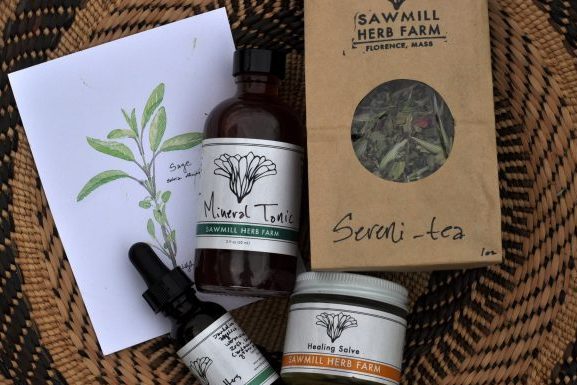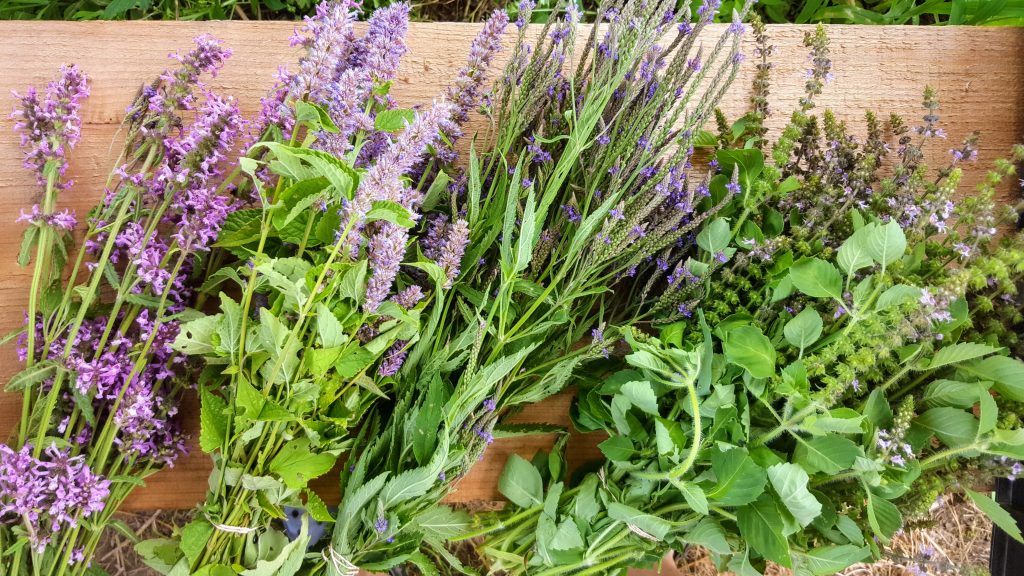Herb Profile: Bacopa
Bacopa, Bacopa monnieri

Bacopa, also known as Brahmi, is a low-growing perennial (annual in our climate) native to India, and has its traditions in Ayurvedic medicine, a healing system developed thousands of years ago in India. One of bacopa’s primary mechanisms is in enhancing cognitive function, and has been used in Ayurveda as a brain tonic to enhance the development of memory, learning, and concentration. In clinical studies, it has been used to provide relief to patients with anxiety, epilepsy, and insomnia. Aside from increasing intellectual function, bacopa induces a sense of calm, reducing the effects of stress and nervousness.
Additionally, bacopa has also been used to treat digestive ailments, as well as skin and bronchial ailments, including asthma, eczema, psoriasis, abscesses, ulcerations, and constipation. These effects are perhaps due to the bitterness of bacopa, the taste of which stimulates the excretion of digestive enzymes throughout the digestive tract, as well as bile from the liver. Support of these primary eliminatory organs, in turn, supports the healthy release of toxins through secondary eliminatory organs, including the skin and lungs. Further, bacopa has been shown to possess anticancer and antioxidant properties.
Preparations
The entire plant can be used medicinally. It can be prepared as an alcohol extract using the fresh or dried plant. It can also be dried, ground in a blender and taken in capsule form. We also dry it whole and then use it in teas, in combination with sweeter, more delicious herbs to help balance out the bitterness. In India, it is often prepared in salads, soups, and as a cooked vegetable but as you will find out, it is quite bitter and we have yet to cook with it.
We recommend tincturing the fresh plant in alcohol and setting it aside to combine with other herbs for a brain tonic formula. Herbs like: rosemary, skullcap, ginkgo, lemon balm, tulsi and ashwagandha. Herbalist Maria Noel Graves has a nice article on brain tonics online here.
Cautions/Contraindications
Some may experience increased peristalsis and intestinal upset.
🌿 Grow, Harvest & Learn with Us This Season! 🌿
Whether you're looking to fill your apothecary with vibrant, fresh herbs, start your own garden with strong, healthy seedlings, or deepen your knowledge of herbal medicine, we've got you covered.
Join our Fresh Herb CSA to receive weekly bundles of medicinal and culinary herbs, plus guidance on how to use them. Pre-order seedlings to get a head start on your herb garden with our carefully grown plants. Explore our herbal education programs to learn hands-on medicine-making, plant connection, and more.
Looking for high-quality, certified organic herbs year-round? We also offer dried herbs and small-batch tea blends, thoughtfully grown and harvested to bring you the best in herbal wellness.
Be part of a community that values resilience, self-sufficiency, and deep connection to the land. 💚
Sign up for the CSA, pre-order seedlings, shop our dried herbs and tea blends, or explore our herbal education offerings today!
Disclaimer
These statements have not been evaluated by the Food and Drug Administration. This product is not intended to diagnose, treat, cure, or prevent any disease. For educational purposes only. We do not endorse the websites linked to in the resources and have not extensively reviewed all the information on external pages for accuracy. Everyone reacts differently to herbs and we do not attempt to be completely inclusive in the information and contraindications for each herb. Trust your intuition if something is not feeling right for you.
Shop our Apothecary and Nursery
-

Apothecary Products
Nourish yourself and your family with a certified organic farm grown apothecary ...
-

Nursery Products
Grow your garden. We grow certified organic herb, flower and vegetable starts. ...


